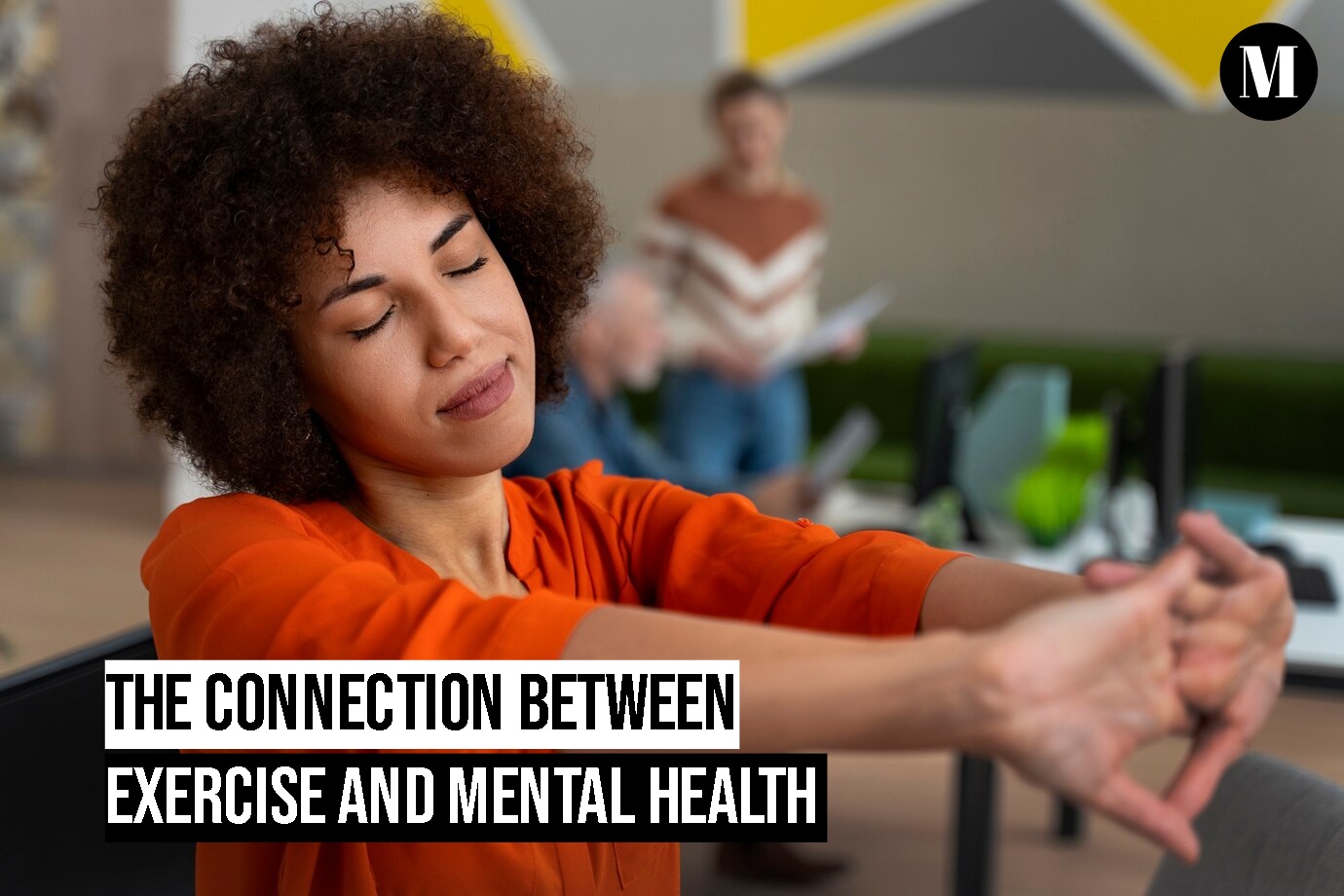Exercise is often seen as a way to stay fit, lose weight, or build strength, but its benefits go far beyond physical health. Regular physical activity has a profound impact on mental well-being, helping to reduce stress, improve mood, and even combat conditions like anxiety and depression.
How Exercise Affects the Brain
When you exercise, your brain releases endorphins, often referred to as “feel-good” chemicals. These natural mood boosters help reduce stress and promote a sense of well-being. Additionally, physical activity increases dopamine and serotonin levels, neurotransmitters that play a key role in regulating mood and emotions.
Exercise also stimulates the growth of new brain cells, particularly in the hippocampus, the part of the brain responsible for memory and learning. This is why staying active is linked to improved cognitive function and a lower risk of mental decline as you age.
Exercise and Stress Reduction

One of the most immediate benefits of exercise is its ability to reduce stress. When you’re physically active, your body’s stress hormones, like cortisol, decrease, while relaxation-promoting chemicals increase. Activities such as walking, yoga, and deep-breathing exercises can help you feel calmer and more centered.
Even just 20–30 minutes of moderate exercise can help relieve tension, clear your mind, and lower stress levels. Over time, regular movement can make you more resilient to stress, allowing you to handle challenges more effectively.
Can Exercise Help with Anxiety and Depression?
Research shows that exercise can be just as effective as medication for some people dealing with mild to moderate anxiety and depression. The combination of increased brain chemicals, improved sleep, and the sense of accomplishment from completing a workout all contribute to better mental health.
Exercise helps reduce rumination, the cycle of overthinking and dwelling on negative thoughts, which is common in people with anxiety. Physical movement also encourages mindfulness by keeping you present in the moment, helping to break free from anxious thought patterns.
For those dealing with depression, exercise provides a natural way to lift mood and restore energy. It also creates a positive feedback loop the more you move, the better you feel, which then motivates you to continue being active.
Best Types of Exercise for Mental Health

Aerobic Exercise
Activities like running, brisk walking, cycling, and swimming increase heart rate and circulation, boosting oxygen flow to the brain. These exercises are particularly effective at reducing stress and anxiety.
Strength Training
Lifting weights or doing bodyweight exercises can improve self-esteem and create a sense of accomplishment. Resistance training has also been shown to reduce symptoms of depression.
Yoga and Mindfulness-Based Exercises
Yoga combines movement, breathing, and mindfulness, making it an excellent choice for reducing stress and improving emotional well-being. Other mindful exercises, like Tai Chi and Pilates, promote relaxation and mental clarity.
Outdoor Activities
Spending time outside while exercising, whether it’s hiking, jogging, or gardening, provides a double benefit. Exposure to sunlight and fresh air boosts vitamin D levels, which plays a role in mood regulation.
How to Make Exercise a Habit

1. Start Small and Build Up
You don’t need to run a marathon or spend hours in the gym. Even 10 minutes of daily movement can have mental health benefits. Begin with manageable activities and gradually increase the intensity.
2. Find Activities You Enjoy
If you don’t like a certain workout, you’re less likely to stick with it. Experiment with different activities until you find something that feels enjoyable and sustainable.
3. Set Realistic Goals
Rather than focusing on big, overwhelming goals, start with small, achievable ones. Whether it’s taking a daily walk or doing a short workout video at home, every step counts.
4. Make It Social
Exercising with a friend, joining a fitness class, or participating in group activities can add a social element to movement, making it more enjoyable and keeping you accountable.
5. Use Exercise as a Coping Tool
Instead of seeing exercise as a chore, reframe it as a way to de-stress and take care of yourself. On tough days, remind yourself that movement can help clear your mind and improve your mood.
Exercise is not just about physical fitness, it’s one of the most powerful tools for improving mental health. Whether you’re looking to reduce stress, boost your mood, or manage anxiety and depression, regular physical activity can make a significant difference. The key is to find activities you enjoy and make them a consistent part of your routine.
If you’ve been feeling overwhelmed or struggling with your mental health, try incorporating movement into your daily life. Like I always say, even small steps can lead to big changes.











